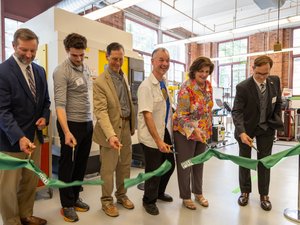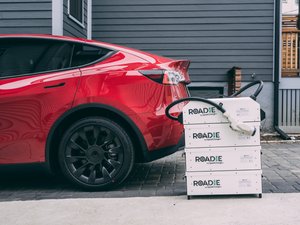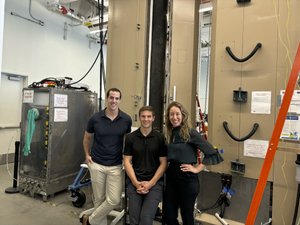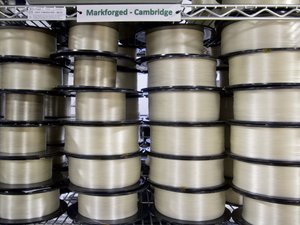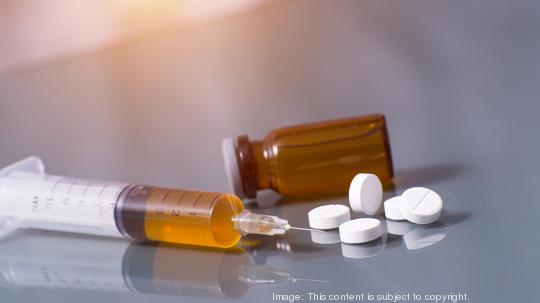
The opioid epidemic in the United States is at crisis levels: two million Americans have become addicted and over 63,000 die every year. Since 2000, the number of related deaths in Massachusetts has increased by 500 percent and now averages around 2,000 deaths a year, making it a leading cause of death. In 2017, the New England region saw a slight decrease in these numbers, thanks to recent efforts that including increasing the availability of naloxone and treatment beds and limiting opioid prescriptions. Based on a CDC breakdown in 2016, the total cost for the state to manage and control the epidemic is as high as $10 billion.
Plenty of local startups have become a part of this effort. Their tactics vary, from encouraging and maintaining sobriety to creating less addictive painkillers and helping cities measure community addiction. But all of these New England startups have one thing in common: practical, usable ways to help addicts and the people who support them.
HQ: Cambridge, MA Launched: 2017
MIT students Mariana Matus and Newsha Ghaeli created Biobot to bring “wastewater epidemiology” to cities. What’s this? In short, Biobot collects and analyzes local sewage using robots to provide insights to cities about the health of the various communities that live there. Their first work is using these samples to measure the concentration of opioids and prescriptions; they’re prototyping in Cambridge and pilot-testing in Cary, North Carolina. From there, they’ll help officials understand where addiction funds and resources need to go. In 2017, Rough Draft Ventures, General Catalyst’s student-funding program, provided financial support to Biobot, and this year, Biobot raised $2.5 million in their first round of seed funding.
HQ: Cambridge, MA Launched: 2015
Blue Therapeutics is a biotech company that’s working to create powerful non-narcotic painkillers. They use a new molecule structure that avoids stimulating pleasure centers of the brain, which is where many existing opioids target. According to their website, they’re able to develop medication that’s 50 times stronger than morphine, without the potential for dependence. In 2016, Blue Therapeutics worked with Harvard iLab, MassChallenge and MassBio and began actively fundraising. Their first candidate, BLUE-181, is nearing clinical trials now.
HQ: Boston, MA Launched: 2013
Centrexion focuses on non-opioid treatments for chronic pain while preventing addiction triggers. Their lead drug therapy, CNTX-4975, uses capsaicin, a naturally occurring compound in chilli peppers that’s been used medicinally for centuries. They use a synthetic form and inject it directly to the site of pain. Centrexion works to tackle different kinds of pain in both humans and animals (they validate their drug therapies by treating dogs that have the same naturally occurring conditions like arthritis). In January 2018, they successfully completed a $67 million Series D financing.
HQ: Arlington, MA Launched: 2014
Billed as “addiction treatment that doesn’t suck,” Column Health aims to be somewhere in the middle between an emergency clinic and an expensive inpatient facility. They deliberately focus on recovery instead of addiction and provide a variety of outpatient services like therapy and medication management for individuals, couples and families. Column Health partners with tech companies to integrate effective digital tools into their treatment. They accept most forms of health insurance and have four sites so far—with hopes to expand beyond Massachusetts in the coming years.
HQ: Boston, MA Launched: 2017
Technically, the Boston Medical Center (BMC) isn’t a startup, but their Grayken Center just launched last year as an innovative new resource to study and treat opioid addiction. This year, the Grayken Center announced that they’re collaborating with Partnership for Drug-Free Kids to develop resources for parents whose children are dealing with addiction. Parents will be able to work with specialists online or over the phone to get customized advice that’s specific to Massachusetts—resources that are, right now, hard to find and often out of date.
HQ: Cambridge, MA Launched: 2016
Hospitals and rehabs can help addicts learn to stay sober—but it’s hard to maintain once they go back to regular life. That’s where Hey, Charlie comes in. Like a friend who offers a non-judgmental, helping nudge, it’s a behavior modification app that runs continuously and responds to environmental triggers. Visiting a location that’s connected to drug use could generate a question or comment: “Are you sure you should be here?” It also logs data so doctors can help if they see risky behavior. The original idea spawned during MIT Hacking Medicine’s Grand Hack in 2016 and started piloting in a clinical setting in August 2017. This past February Hey, Charlie won a start-up competition with the National Institute on Drug Abuse. BostInno also profiled Hey Charlie as an app that helps provide mental wellness.
HQ: Boston, MA Launched: 2013
Pear Therapeutics has two main digital therapeutics for addiction treatment: reSET and reSET-O. reSET is the first FDA-cleared digital therapeutic for treating Substance Use Disorder and integrates with a patient’s outpatient medical treatment program. The patients go through a 12-week program that provides modules to help them maintain abstinence from substances such as stimulants, marijuana, cocaine or alcohol. The second, reSET-O, will be targeted to individuals with Opioid Use Disorder and used in conjunction with medication replacement therapy in addition to an outpatient treatment program. The information is then shared in real-time with the doctor, who can customize treatment and help the addict stay clean. Pear Therapeutics raised $20 million in funding in 2016 from, among others, VC firms 5AM Ventures and JAZZ Venture Partners, and an additional $50 million in 2017 to help bring these products to patients.
HQ: Somerville, MA Launched: 2015
Sober Grid is an online community centered on productivity and healing for those battling addiction. The app helps people find resources like doctors and therapists who can help maintain recovery.It’s also a powerful tool to help addicts connect with each other, especially if they use the GPS locator to find other sober people in their area. Founder Beau Mann says that in many cases, Sober Grid has helped save users’ lives by suggesting timely resources or decreasing feelings of isolation. This February, Mann announced that the app is bringing AI to its services to help predict relapses. We included Sober Grid in our list of Boston apps that focus on mental wellness.
HQ: Hanover, NH Launched: 2015
Square2 is in the process of launching Laddr based off of 20 years of research. They’re located near Dartmouth College and the founder, Dr. Lisa A. Marsch, is the director of the Dartmouth Center for Technology and Behavioral Health. Laddr tackles the roots of addiction and resistance to change, including negative moods, bad thoughts, anxious feelings, cravings and poor problem solving. The app is designed to help the recovery from start (setting a goal, planning out a route for success) through execution (replacing bad behaviors and sustaining recovery). Laddr’s currently in beta testing.
HQ: Farmington, CT Launched: 2012
When patients in recovery use the TryCycle app, they’re prompted to submit regular journal entries based on some basic questions. The app uses an algorithm to process the comments, then sends the information on to the patient’s doctor. That data identifies the risk of that patient relapsing, which gives the doctor more data and helps forge a better relationship with the patient. TryCycle is a part of the University of Connecticut Technology Incubation Program (TIP); some Hartford programs already use the app and substance abuse programs in Meriden and Old Saybrook are piloting it now.
